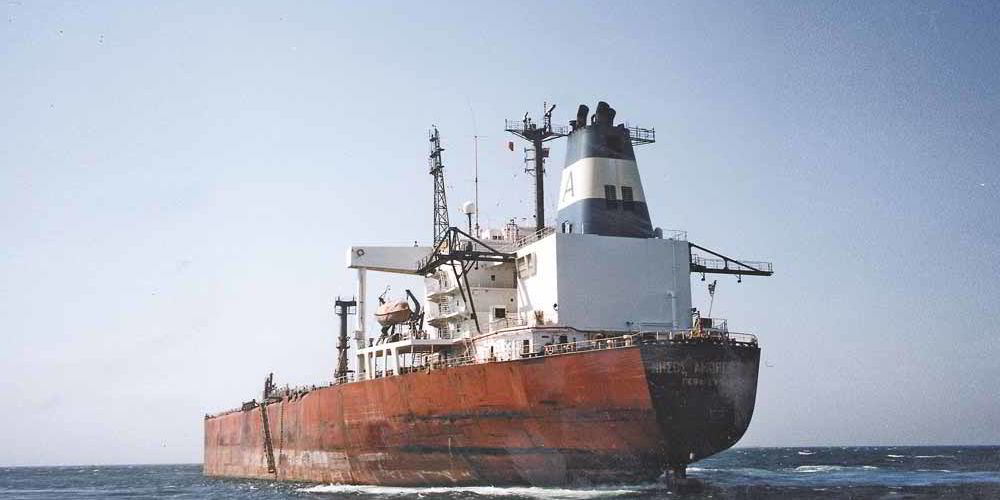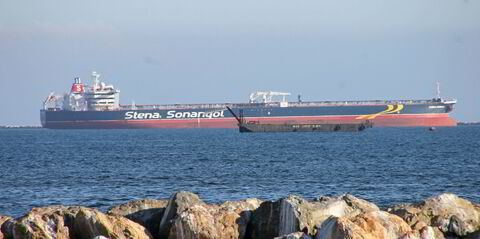A substantial majority of international governments today backed a proposal to wind-up the International Oil Pollution Compensation (IOPC) 1971 Fund at the end of this year.
The move leaves Gard facing a $60m judgment over the Venezuelan spill without the substantial contribution that the IOPC Funds makes to most tanker pollution claims.
It is understood that 29 state delegates voted in favour of winding up the 1971 fund with 14 against and three abstaining.
The move follows a London high court ruling that found the IOPC Funds did not have a contractual obligation to the Norwegian protection and indemnity club over the Nissos Amorgos and even if they did there was legal immunity under English law.
Gard has been refused leave to appeal and ordered to pay both sides costs, including making an immediate payment of £400,000 ($642,000) to the IOPC Funds, by London high court judge, Justice Hamblen.
A legal challenge by Gard, support from other P&I clubs and backing from industry organisations such as the International Chamber of Shipping (ICS), the Baltic and International Maritime Council (Bimco) and the International Association of Independent Tanker Owners (Intertanko) failed to dissuade the IOPC Funds from winding up the 1971 fund.
There was a rare IOPC Funds vote on the issue with countries opposing the winding up including the UK, France, Greece, Cyprus, Liberia and Panama.
IOPC Funds director, Jose Maura, said there had been extensive debate about the issue of winding up the 1971 fund and significant efforts to find a solution. But ultimately the 1971 fund had met its obligations so the winding up decision was appropriate.
The International Group, the organisation linking the 13 leading P&I clubs, warned that it was a sad day for oil pollution victims as a consequence of the decision would be a reluctance to agree streamlined procedures for future claims, with the mutuals inclined to instead opt to establish limitation funds in court.
International Group chief executive, Andrew Bardot, said the clubs deeply regretted the decision to wind up the 1971 fund but would continue to respect their tanker pollution compensation obligations.
Bardot said that as a minimum a new legally binding and enforceable agreement would be needed with the IOPC Funds if flexibility was to continue.
“Trust takes a long time to build but can be quickly undermined,” he added.
Click here to read an International Group statement on the decision to wind up the 1971 fund.
The Norwegian P&I club has been arguing that it is premature to wind-up the 1971 fund despite the pollution compensation regime it supported ceasing to be in force since 2002.
Gard now faces the challenge of how to respond to a $60m Venezuelan Supreme Court judgment arising from a spill by the 86,400-dwt Nissos Amorgos (built 1988) in 1997.
The P&I club is seeking to bring the 1971 fund into Venezuelan legal proceedings but the London based IOPC Funds have decided to not become involved.
Gard still has a $58m London High Court freezing order against the 1971 Fund despite the logic of the High Court rulings suggesting it should be lifted.
Following today vote by countries that were formerly backers of the 1971 fund compensation regime the IOPC Fund is seeking legal advice about how it should reconcile the winding up decision with the freezing order.
Despite the size of the freezing order obtained by Gard there was only $7.6m in the 1971 fund’s kitty at the start of this year with the amount set to be reduced to about $3m by the New Year.
(TradeWinds has written extensively about the issues arising from the Nissos Amorgos spill and subsequent events. Click here to read more)



